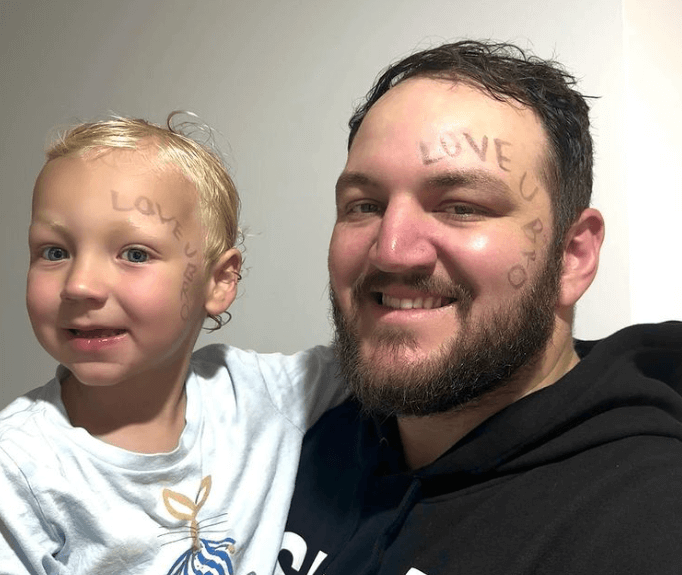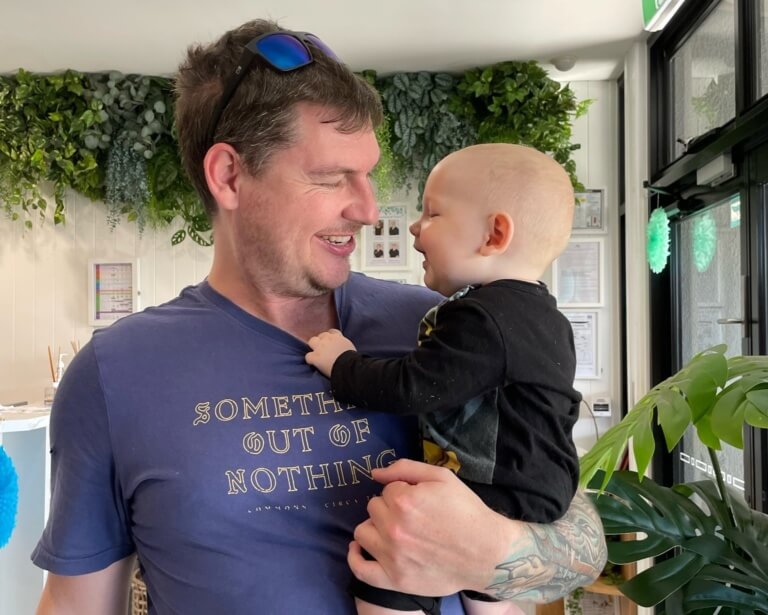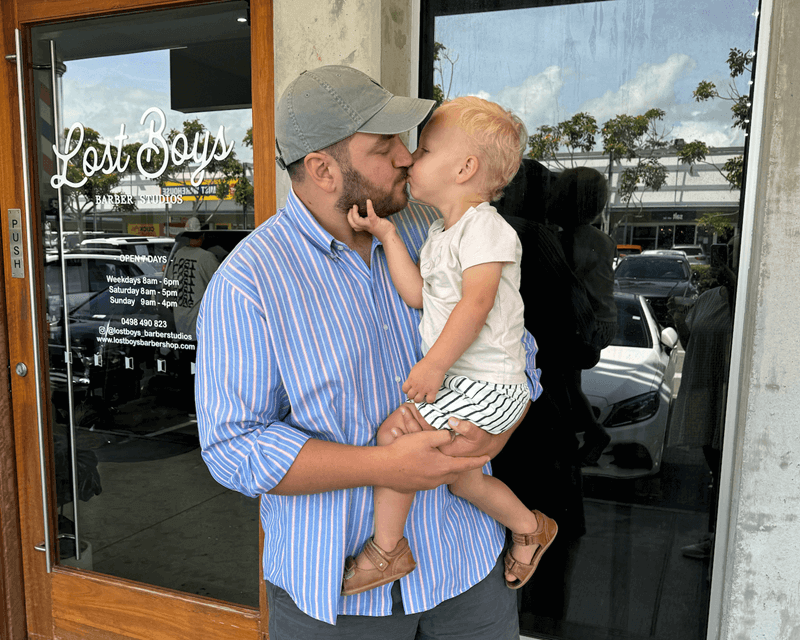Supporting boys in understanding emotions to grow into kind, resilient individuals
In recent years, news headlines have frequently highlighted the challenges surrounding men’s mental health, and the troubling rates of violence and suicide among men. While these stories are not representative of men overall, these issues don’t emerge overnight. They’re often rooted in childhood, shaped by how boys are taught to understand emotions, handle challenges, and connect with others. While these statistics are concerning, they also present an opportunity. If we start now, we can nurture a generation of boys who grow into kind, empathetic, and resilient men. If we encourage sensitivity, respect, and emotional awareness from an early age, we can help our little boys become the well-rounded, compassionate adults our world needs.
Raising both sexes present different challenges for parents, but really it’s a very individual approach to each child to ensure they’re learning to become kind, respectful human beings.
Traditionally, little boys have been taught to “man up” and avoid showing “weakness” by expressing emotions. This can be deeply isolating, leading to feelings of loneliness or frustration, and in some cases, acting out through belittling or bullying those who are more open with their emotions. In fact, a recent international study found that Australian teenagers experience bullying at the second highest rate among developed countries. The good news is that bullying numbers are showing a downward trend, suggesting that shifts in attitudes are making a difference.
By encouraging young boys to embrace and express their feelings, as well as having awareness of them in others, we can cultivate environments that support kindness and empathy, helping them build respectful relationships and healthy ways to cope with emotions. This approach is essential for raising well-rounded, compassionate individuals who understand that true strength comes from being open, understanding, and kind to themselves and others.
At Little Scholars, we believe strength comes from vulnerability, showing and sharing the range of human emotion, and understanding and displaying empathy rather than ignorance.
Our goal is to provide a secure and trusting environment in which all children feel a sense of belonging. We support children to form positive relationships with peers, educators and their environments, while recognising and maybe improving their existing relationships with their family and community.
Part of building and maintaining these relationships means teaching children to recognise the range of emotions within themselves and in others. This in turn builds empathy, understanding and respect for others. We do this in a variety of age-appropriate ways to support children’s emotional development. From understanding what the various feelings are, understanding how they feel, how to see these in others, as well as mindfulness practices to deal with harder feelings when they arise.

What can parents do in raising boys to be caring and compassionate?
To get an understanding of some of the potential reasons for what’s happening in males, what we can do now, we spoke to Dean Cooper, the program manager for White Ribbon Australia, a not-for-profit global social movement working to stop men’s violence against women. The organisation’s mission is to strive for a society where all women and children are safe. November is White Ribbon Month in Australia, we encourage you to visit the White Ribbon Australia website and contribute if you can.
Dean also happens to be the proud dad of two little boys, one of whom is pictured with Dean in the top photo and attends Little Scholars. We’re thrilled to have Dean’s expertise on this important topic.
Could you please tell us about your role at White Ribbon Australia?
I design programs for high schools and workplaces on domestic violence (DV), masculinity, respectful relationships, consent, etc. Secondary to my role at White Ribbon Australia, I am an ambassador for the innerBoy app which is an app assisting men to heal from trauma and get support for any mental health challenges they are facing.
How did you get involved in this important work?
Well, originally I wanted to play Rugby Union professionally, however that didn’t work out, so I studied criminology and undertook a career in corrections, conducting assessments on people who committed offences of all kinds. I began to focus solely on working with men and fathers who used violence, and about seven years ago I started facilitating men’s behavioural change programs for men being released from prison for DV offences. Quite alarmingly, what I learnt was a lot of behaviour I engaged in within sporting environments, such as sexist jokes, violent chants, and street harassment on nights out, actually made their way into these programs, and condoned or supported a lot of problematic beliefs these men who were using violence had. It was my full circle journey to realising that not all disrespect leads to violence, but all violence starts with disrespect. I’ve decided to stick with this work and found a passion for it as I think it’s important that those who are being disrespectful or choosing to use violence receive counter narratives from culture to say these behaviours aren’t okay.
What has made you so passionate about ensuring we raise kind, respectful boys?
I am passionate about the role men play in shaping children, especially boys, and have a desire to see every father role-modelling safe and respectful behaviour. I truly believe safe, engaged, and present fathers can positively impact our future generations and are the solution for the social issues we see today. Unfortunately, what I’ve learned in this work is that a lot of men either didn’t have positive role models growing up, or look around at music, TV, movies, pornography, social media, etc. and have no mainstream examples of what positive, safe, and effective fathering looks like. It’s my passion to create spaces for men to learn what fathering means and how we role model respect, equality, and safety.
The most important question: what could parents, especially of little boys, do now to ensure they’re raising kind, respectful human beings?
There isn’t much at such a young age that we can ‘teach’ in that formal sense. Children will learn from observing so it’s important we role model more than try and teach. I’ll just provide my own strategies.
One thing I am trying to personally do is role model accountability. If my son says something like ‘that makes me sad’ or ‘I don’t like it’ if I am playing, or implementing a boundary I try to talk to him about why it upsets him and validate his feelings. I also role model saying ‘sorry’. Likewise, with my wife I make a purposeful attempt to apologise for things and role model what it’s like to get it wrong and change my mind. It’s crucial to show we don’t always have the answers, we are going to make mistakes, but we can always acknowledge our impact and make amends.
I try to hold myself proactively accountable as well. As adults, we know when we haven’t done our best work. If we are distracted on our phone when our child tries to engage us, or if we snap at them for not doing something we asked, or if they are talking and we interrupt with something else. We can proactively hold ourselves accountable, I try to say ‘son, when you were talking then I realise I wasn’t fully listening and I am sorry, what you have to say is important and I recognise by not listening I didn’t show that.’
“I also believe we play a huge role in teaching our boys to regulate their emotions. We seem to be better at comforting girls or more accepting of their emotions. In terms of our boys, we need to shift from correction to connection.”
Another, ‘I’m sorry I yelled before, it’s my responsibility to stay calm and I didn’t do that, it wasn’t my intention to make you upset but I realise it did, I am sorry for that and next time I am going to do better.’ If I see my son be unkind to someone in the playground or at kindy drop off, I try use those moments to ask him what he thinks the impacts were and how we can make amends. For example, ‘I saw when you took those two toys and didn’t give one to Johnny. Look at Johnny now, does he look happy or sad? Johnny looks sad and I think it’s because he doesn’t have a toy, can you help me find a way for Johnny to have a toy too?’ and layer that in with an apology for not sharing. Taking those steps to encourage my son to see the impact they have on others, be comfortable with reflecting on what they’ve done, and how to repair. That’s how we start to shape kind, reflective, and safe boys.
At least once a week, I try:
1. Admit a mistake I made
2. Share what I learnt about that mistake
3. Ask for help.
This is how we mark ourselves as a psychologically safe person. If we can role model getting it wrong, learning from that, and being willing to accept help, we role model that we are a safe person to hold accountable, we’ll treat their mistakes with empathy and understanding, and it’s okay to make mistakes. If we can mark ourselves as safe people by role modeling this, then we normalise recognising the impacts we have on others and repairing those. I just never want my children to hide something from me because they felt like they couldn’t tell me. I don’t want them to say ‘I made a mistake don’t tell Dad’ and instead say ‘I made a mistake I have to tell Dad.’ That’s the goal.
I also believe we play a huge role in teaching our boys to regulate their emotions. We seem to be better at comforting girls or more accepting of their emotions. In terms of our boys, we need to shift from correction to connection. Again, I think we need to role model this and talk about when we are frustrated, sad, disappointed, happy etc. I speak with a lot of dads who openly state at times they’ve been sad or angry, their children will ask ‘Daddy, are you okay?’ and they respond ‘Yeah, I am fine’ when they really aren’t. Children are these perfect little emotional barometers and what we actually do in that moment is not protect them from any negative feelings, but lie to them and tell them their sense of emotions was wrong. Instead, I try and role model ‘Daddy is feeling sad right now, thanks for noticing and asking if I am okay. When I feel sad I like to find an activity that makes me happy or find Mummy and give her a big cuddle.’ It’s important we teach boys to recognise their emotions, deal with them, and implement strategies to cope.
Physical affection is so important. As a guy growing up I always heard about this ‘tough love’ approach to parenting and the whole ‘just wait till your Dad gets home’ disciplinary role we were supposed to play. In my career, I’ve worked with a lot of men who have poor emotional regulation or traumatic backgrounds and they all report a lack of being told they are good enough and to be embraced. We do some exercises in prison groups where the men outline what they wish they had more of as children, all of it comes back to being told they were of value just as they were, and wishing they were shown love more.
Thank you, Dean, we’re so appreciative to have your insight!

Building relationships at Little Scholars
At Little Scholars, we feel strongly it takes a village to raise a child, and we’re very proud to be a part of your child’s community as she or he grows and learns about the world. All of our little scholars learn about emotions in a number of age and developmentally-appropriate ways. It’s a very important facet of our early educational curriculum, supported by the Early Years Learning Framework.
We aim to provide a safe and secure space in which they grow and thrive. To ensure we’re doing this, we’re constantly working to improve our knowledge and practices. Our educators regularly take on professional development that helps them understand and guide children through not only their letters and numbers, but their emotional and social growth, on topics like developing mindfulness practices in their studios, developing frustration tolerance even more specific learnings such as trauma-informed practice.
Of course, ensuring children’s safety is paramount, and our educators are also regularly trained and updated on Child Protection Policy and procedures.
If you have any questions or concerns about your child, we have an open door policy and we invite you to talk to your educator, educational leader or campus manager any time.
Little Scholars offers you and your child the very best facilities, resources and early educational, play-based programs available, which are underpinned by the early years learning framework. Our belief is that through quality education and care for children we can also encourage, assist and support the entire family.
Our dedicated team of educators are committed to the individual needs and interests of children and their families, and thus we encourage and welcome family input and involvement.
We aim to be like an extension of your family and are very relationship-driven. We support nurturing relationships between our educators and your child, the relationships your child has with the other children who attend, and we value our relationship with you as the parent and other family members. So book a tour today to get started!
